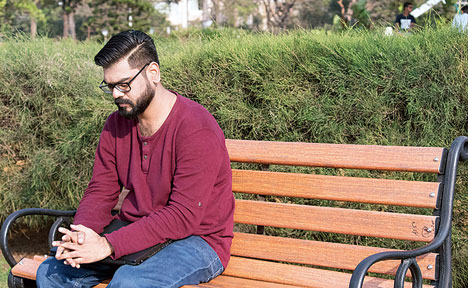
For most of you about to join college, this is a very exciting time. You'll meet new friends, join interesting clubs, create societies and probably take some not-so-great decisions. While some of you are looking forward to these new experiences, it can be an extremely challenging time for those who suffer from social anxiety.
"To some extent, all young adults formulate their ideas of self via the lens of their peers. Validation and acceptance from peers assist in developing a positive perception of self," says Tanya Vasunia, a psychologist at Mpower, a mental health centre in Mumbai. "Unfortunately, if we rely heavily on society to provide us with validation and acceptance, social interactions can become high pressure tasks that lead to feelings of anxiety," she adds.
Language disconnect
The situation gets worse if the student is an introvert like Beas Basu, who joined Banaras Hindu University last year to study Sociology. "I found people here extremely conservative and somewhat orthodox. There is a wide cultural gap with them," reminisces Beas, who studied at Calcutta Girls' School. Also, language was a big hindrance as most people - including teachers - converse in Hindi. So Beas made few friends and, until recently, was quite isolated.
Language also came in the way of social interaction and acceptance for Srijita Banerjee, who studies Commerce at J.D. Birla Institute in Calcutta. "I used to wonder who am I going to sit next to, who do I talk to, what if I say something wrong," says Srijita who had studied in a Bengali medium girls' school in Sealdah.
"You can't control what other people think or feel but you can control how you handle yourself," says Vasunia. The thing to keep in mind is that feelings of anxiety eventually pass. However, if your anxiety is a recurring phenomenon, lingers for an extended period of time and begins to hamper your quality of life, you need to speak to a professional.

Tips to tackle it
• Be friendly. Smile as you walk around the campus, try to make eye contact with other students and teachers
• Sit beside someone you don't know in class and introduce yourself. Ask for clarifications of an assignment, his or her opinion on study strategies or other relevant issues
• Keep the focus on the other person; this can help him or her to open up, trust you and become friends. Ask about the person's interests, problems and opinions. Be a patient listener
• Share a few things about yourself, but don't pass too strong an opinion. This might scare some people away
• Join a club or group - say, a photography club or a house magazine - of your choice
Above all, be patient. You'll have found your own place by the end of the term.










